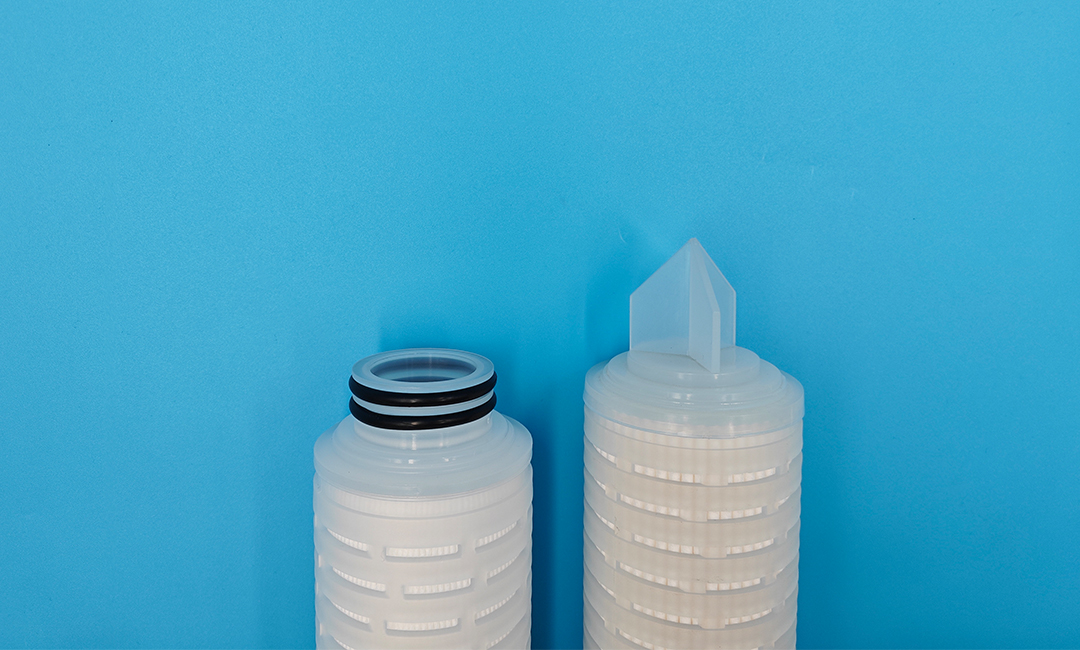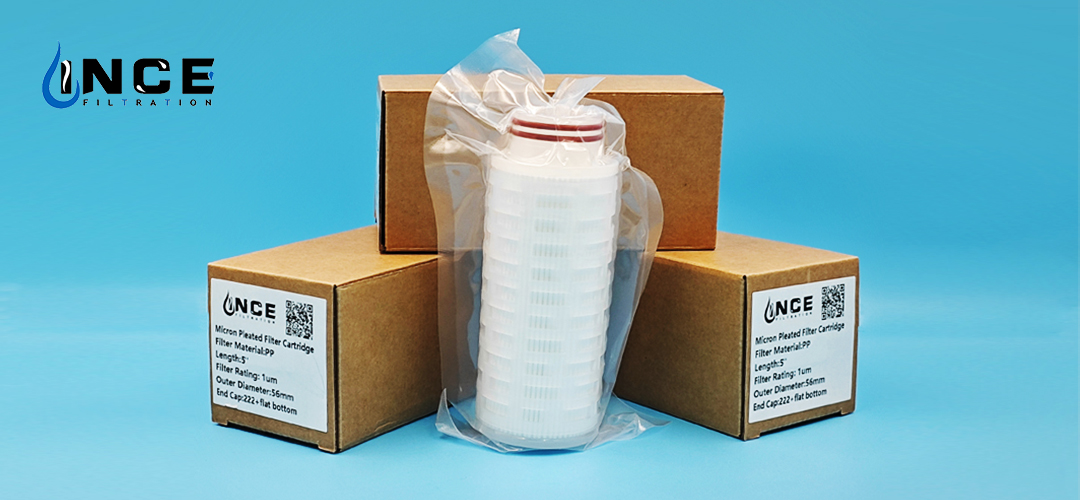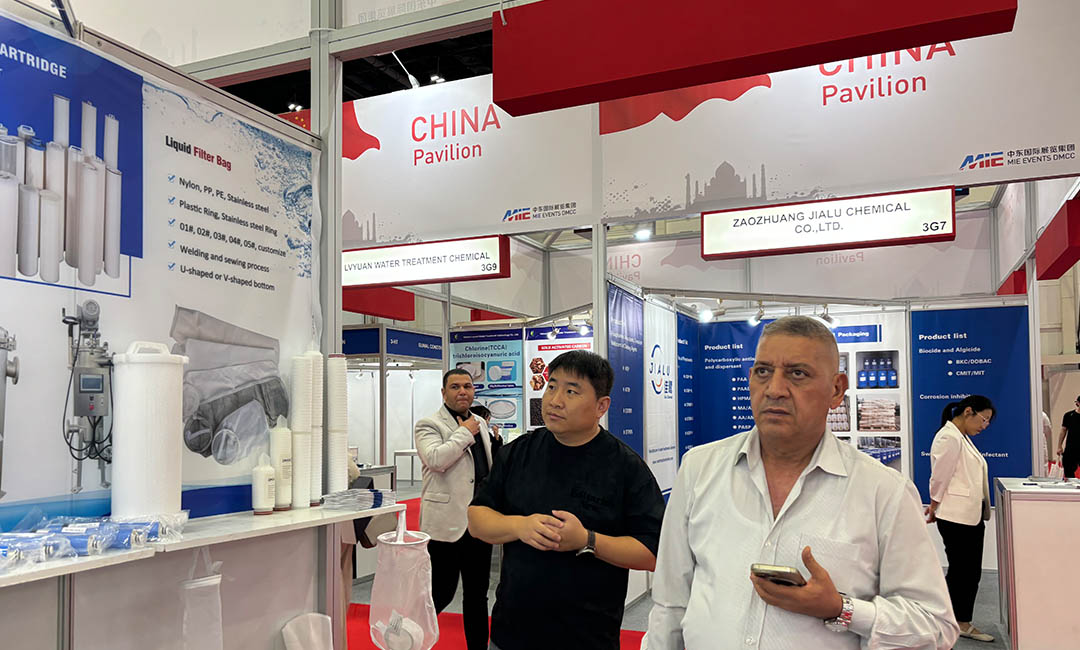A Comparison of 5-Micron and 20-Micron Pleated Filters for Water Filtration
Efficiency of 5-Micron vs. 20-Micron Pleated Filters
When it comes to water filtration, choosing the right filter is crucial to ensure that your water is clean and safe to drink. Two common types of pleated filters used for water filtration are 5-micron and 20-micron filters. These filters are designed to remove different sizes of particles from the water, but how do they compare in terms of efficiency?
The micron rating of a filter refers to the size of particles that it can effectively remove from the water. A 5-micron filter is capable of capturing particles as small as 5 microns in size, while a 20-micron filter can capture particles as small as 20 microns. In general, the lower the micron rating, the more efficient the filter is at removing smaller particles from the water.

One of the main advantages of using a 5-micron filter is its ability to remove a wider range of contaminants from the water. Because it can capture smaller particles, a 5-micron filter is more effective at removing sediment, dirt, rust, and other fine particles that may be present in the water. This can result in cleaner and clearer water that is free from impurities.
On the other hand, a 20-micron filter may not be as effective at removing smaller particles from the water. While it can still capture larger particles such as sand and silt, it may not be able to remove finer particles that can affect the taste and quality of the water. This means that water filtered through a 20-micron filter may not be as clean or pure as water filtered through a 5-micron filter.

In terms of flow rate, a 20-micron filter may have a higher flow rate compared to a 5-micron filter. This is because the larger pores in a 20-micron filter allow water to pass through more quickly, resulting in faster filtration. However, this faster flow rate may come at the cost of reduced filtration efficiency, as the larger pores may not be able to capture smaller particles as effectively.
When it comes to cost, 20-micron filters are generally more affordable than 5-micron filters. This can make them a more budget-friendly option for homeowners who are looking to improve the quality of their water without breaking the bank. However, it is important to consider the trade-off between cost and filtration efficiency when choosing between a 5-micron and 20-micron filter.
In conclusion, both 5-micron and 20-micron pleated filters have their own advantages and disadvantages when it comes to water filtration. A 5-micron filter is more efficient at removing smaller particles and contaminants from the water, resulting in cleaner and purer water. However, a 20-micron filter may have a higher flow rate and be more affordable, making it a suitable option for those on a budget.
Ultimately, the choice between a 5-micron and 20-micron filter will depend on your specific needs and preferences. If you are looking for the highest level of filtration efficiency, a 5-micron filter may be the best option for you. However, if you are looking for a more budget-friendly option with a higher flow rate, a 20-micron filter may be more suitable. Whichever filter you choose, be sure to regularly replace it according to the manufacturer’s recommendations to ensure that your water remains clean and safe to drink.
Cost Comparison of 5-Micron and 20-Micron Pleated Filters
When it comes to water filtration, choosing the right filter is crucial to ensure that your water is clean and safe to drink. Two common types of pleated filters used in water filtration systems are 5-micron and 20-micron filters. These filters are designed to remove different sizes of particles from the water, with the 5-micron filter being able to capture smaller particles than the 20-micron filter. In this article, we will compare the cost of using 5-micron and 20-micron pleated filters for water filtration.

One of the main factors to consider when comparing the cost of 5-micron and 20-micron pleated filters is the initial cost of the filters themselves. Typically, 5-micron filters are more expensive than 20-micron filters due to their ability to capture smaller particles. This means that if you choose to use 5-micron filters in your water filtration system, you can expect to pay more upfront for the filters compared to using 20-micron filters.

However, it is important to consider the long-term cost of using 5-micron and 20-micron pleated filters for water filtration. While 5-micron filters may be more expensive initially, they tend to last longer than 20-micron filters due to their ability to capture smaller particles. This means that you may need to replace 20-micron filters more frequently than 5-micron filters, which can add up over time in terms of cost.
Another factor to consider when comparing the cost of 5-micron and 20-micron pleated filters is the cost of maintenance. In general, 5-micron filters require less maintenance compared to 20-micron filters. This is because 5-micron filters are able to capture smaller particles, which means that they are less likely to become clogged and require cleaning or replacement. On the other hand, 20-micron filters may need to be cleaned or replaced more frequently due to their larger pore size and higher likelihood of becoming clogged.
In addition to the initial cost of the filters and maintenance, it is also important to consider the cost of energy consumption when comparing 5-micron and 20-micron pleated filters for water filtration. Generally, 5-micron filters tend to be more energy-efficient compared to 20-micron filters. This is because 5-micron filters have a smaller pore size, which means that they require less energy to push water through the filter compared to 20-micron filters. This can result in lower energy costs over time when using 5-micron filters in your water filtration system.
In conclusion, when comparing the cost of using 5-micron and 20-micron pleated filters for water filtration, it is important to consider the initial cost of the filters, maintenance costs, and energy consumption. While 5-micron filters may be more expensive upfront, they tend to last longer, require less maintenance, and are more energy-efficient compared to 20-micron filters. Ultimately, the choice between 5-micron and 20-micron filters will depend on your specific water filtration needs and budget.
Longevity and Maintenance of 5-Micron vs. 20-Micron Pleated Filters
When it comes to water filtration, choosing the right filter is crucial to ensure clean and safe drinking water. Two popular options for pleated filters are the 5-micron and 20-micron filters. These filters are designed to remove impurities and particles from water, but they differ in their filtration capabilities. In this article, we will compare the longevity and maintenance of 5-micron and 20-micron pleated filters to help you make an informed decision for your water filtration needs.
One of the key differences between 5-micron and 20-micron pleated filters is their filtration efficiency. The micron rating of a filter refers to the size of particles it can effectively remove from water. A 5-micron filter is capable of capturing smaller particles than a 20-micron filter. This means that a 5-micron filter can provide more thorough filtration and remove finer impurities from water compared to a 20-micron filter.
In terms of longevity, 5-micron filters typically have a shorter lifespan than 20-micron filters. This is because the smaller pores of a 5-micron filter can become clogged more quickly with debris and particles, reducing its effectiveness over time. As a result, 5-micron filters may need to be replaced more frequently than 20-micron filters to maintain optimal filtration performance.
Maintenance requirements also differ between 5-micron and 20-micron pleated filters. Due to their finer filtration capabilities, 5-micron filters may require more frequent cleaning to prevent clogging and maintain water flow. Regular maintenance is essential to ensure that a 5-micron filter continues to effectively remove impurities from water. On the other hand, 20-micron filters may require less frequent cleaning and maintenance due to their larger pores and higher capacity for debris.
When considering the longevity and maintenance of 5-micron vs. 20-micron pleated filters, it is important to take into account the quality of water being filtered. If your water source contains a high concentration of fine particles and impurities, a 5-micron filter may be more suitable for thorough filtration. However, if your water is relatively clean with larger particles, a 20-micron filter may be sufficient for effective filtration.
In conclusion, the choice between a 5-micron and 20-micron pleated filter for water filtration depends on your specific needs and water quality. While a 5-micron filter offers superior filtration efficiency, it may require more frequent maintenance and replacement compared to a 20-micron filter. Consider the level of impurities in your water source and your maintenance preferences when selecting the right filter for your water filtration system. Ultimately, both 5-micron and 20-micron pleated filters are effective options for removing impurities from water and ensuring clean and safe drinking water for you and your family.
